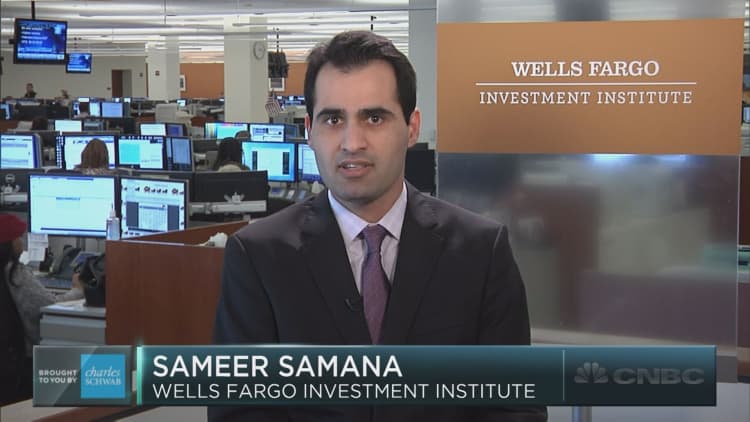
The market will experience heightened volatility and uncertainty ahead, and investors will have to position themselves accordingly, in a time the Wells Fargo Investment Institute characterizes in a new report as the "age of discontent."
Households across the country have felt economic recovery to very different and uneven degrees post-financial crisis, according to the report, which attributes such "discontent" for market participants to frustration across economic classes, along with increased political uncertainty on the horizon.
"By many measures, this has been a dividend recovery with a distinct set of winners and losers," according to the report written by a team led by Tracie McMillion, head of global asset allocation at the Wells Fargo Investment Institute.
The stark differences in economic recovery might be found in the employed versus the unemployed, savers versus consumers, and small business versus large corporations. What's more is economic growth is not improving quickly enough for many, the report added, citing wage and real income stagnation as forces "fueling protectionism and geopolitical unrest."
And as a new presidential administration ushers in a fresh set of policies, investors will more so begin translating political uncertainty into investing decisions, said Sameer Samana, global quantitative strategist at the Well Fargo Investment Institute, which the market must contend with over the coming years.
New policies like auditing the Federal Reserve may begin affecting markets in a more direct way, and Samana said investors may not make "favorable or rational economic decisions, but those based more on political outcomes."
So what are investors to do?
As investors face more uncertainty going forward in the wake of a new presidential administration ushering in different economic policies, Samana said investors are wise to look at two strategies in particular.
"For most investors, the best way to tackle those two things is to one, stay well-diversified, and two, to make sure that you don't get too carried away with short-term market movements, and to rebalance and come back to what would be a more neutral stance," he said Tuesday on CNBC's "Trading Nation."
In terms of staying "neutral," Samana recommends investors trimming their holdings.
"We had been overweight large caps, think -type stocks. We just took those back to neutral with the thinking the valuations weren't as attractive," Samana said, as he and his firm had reallocated that capital and put it into long-term fixed income, a class which he had previously been underweight, but he now sees as a reliable neutral holding "in a well-diversified portfolio."





